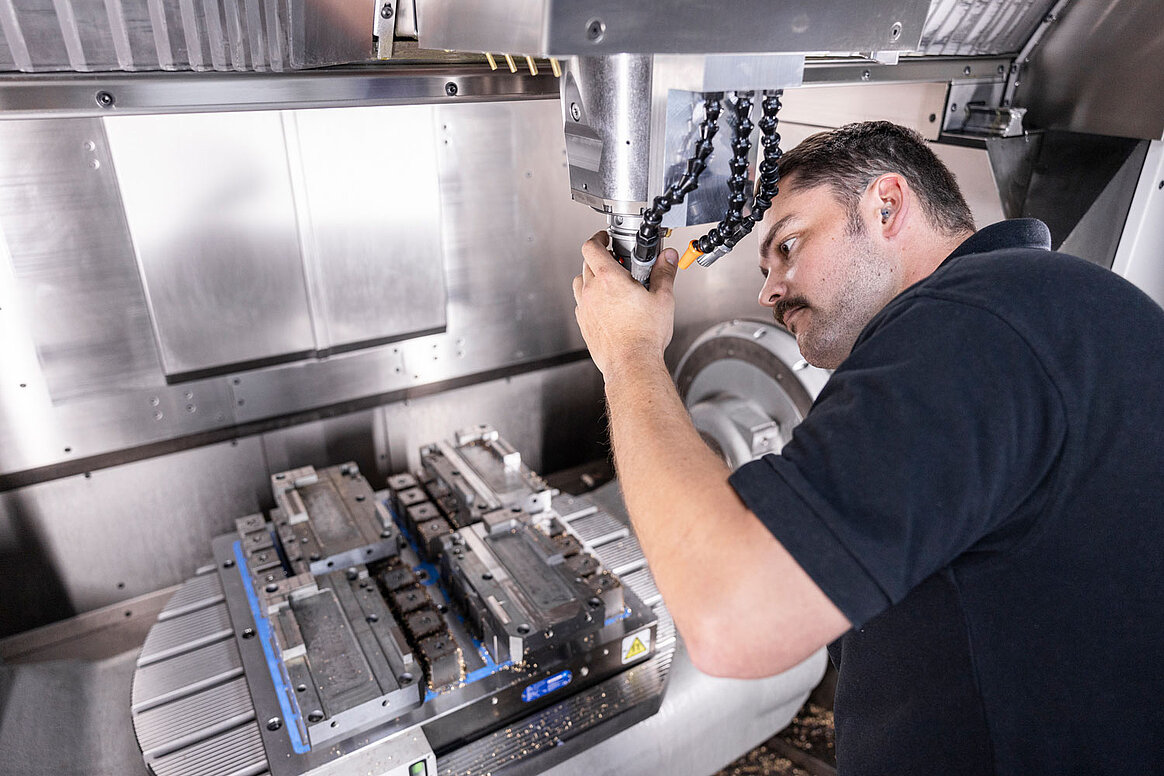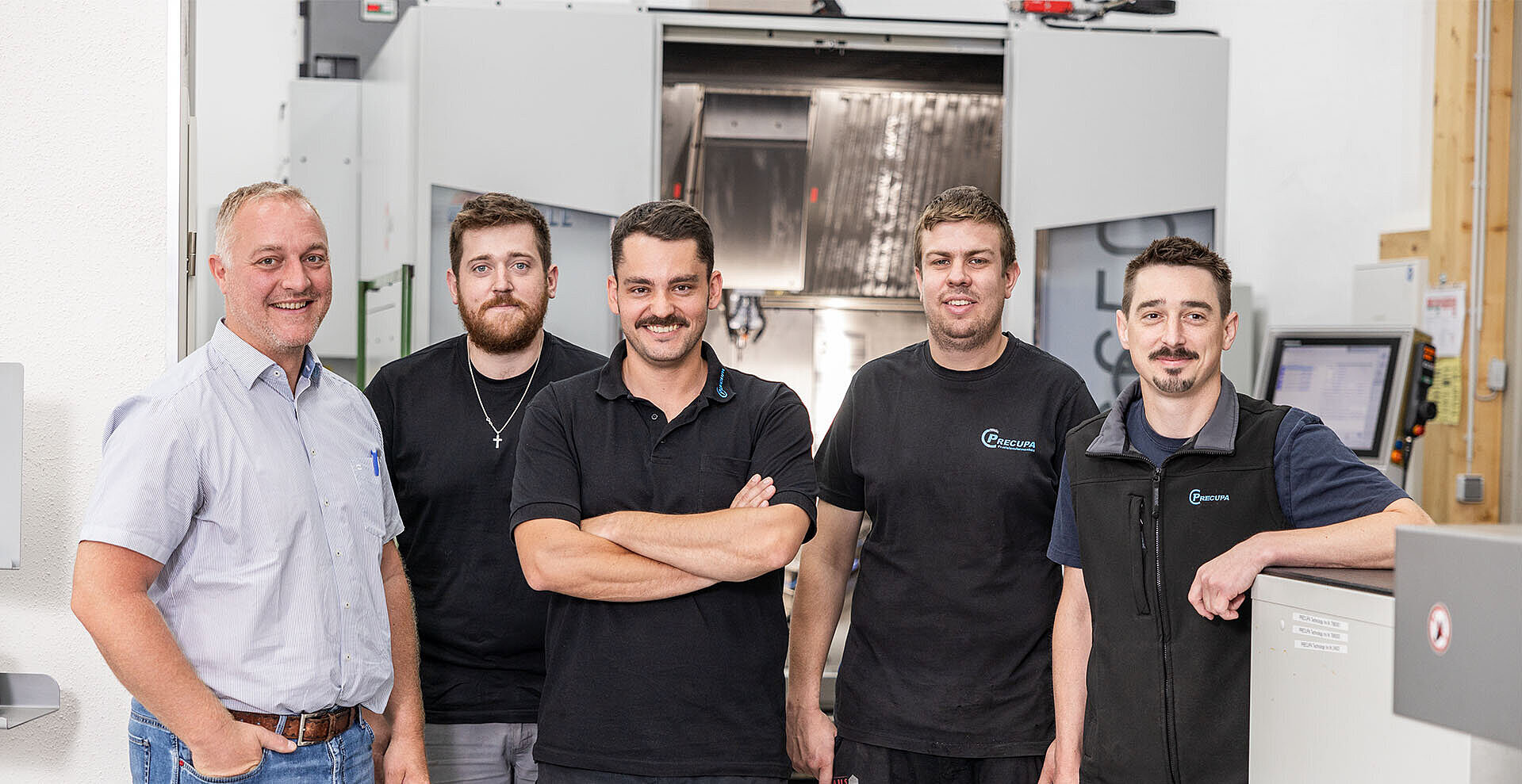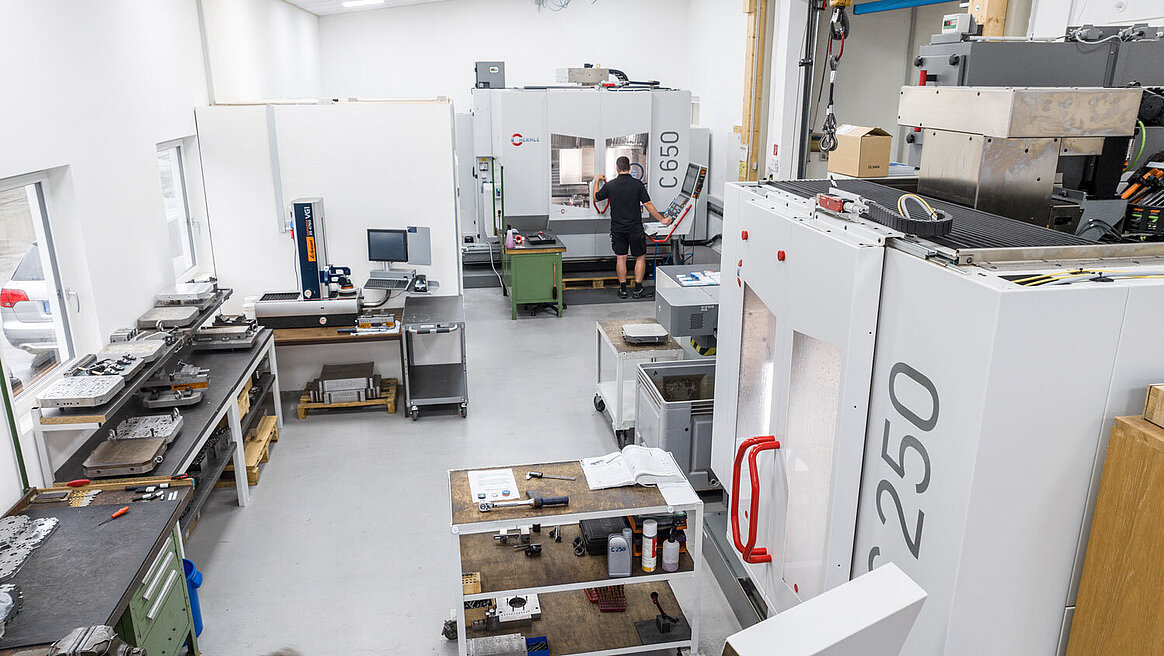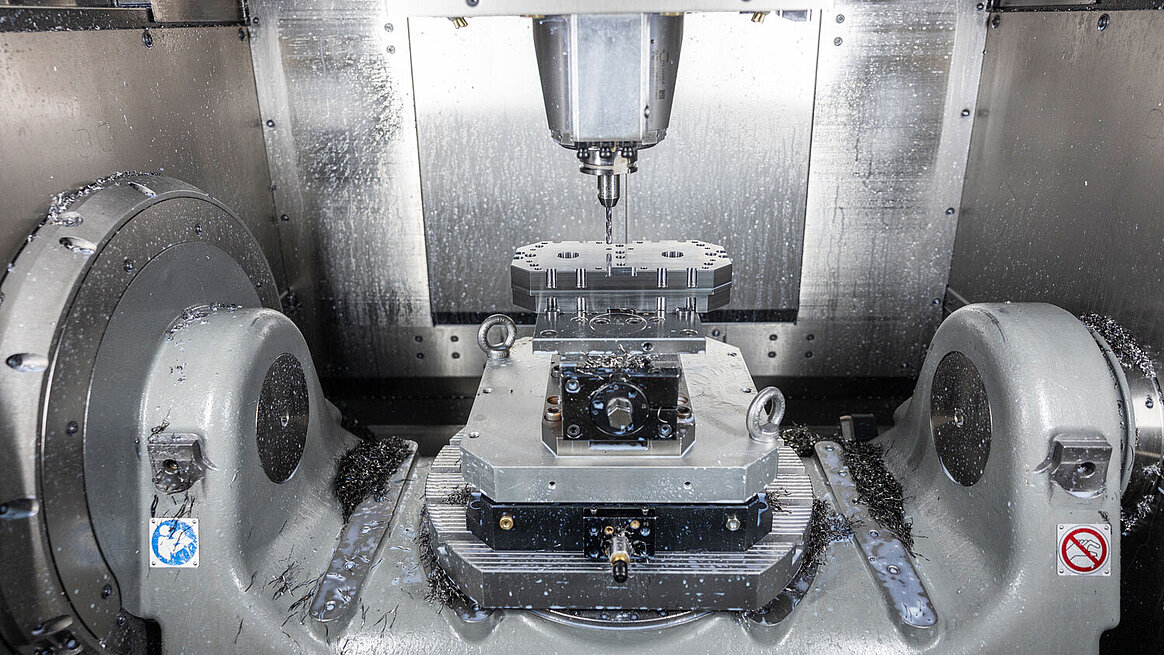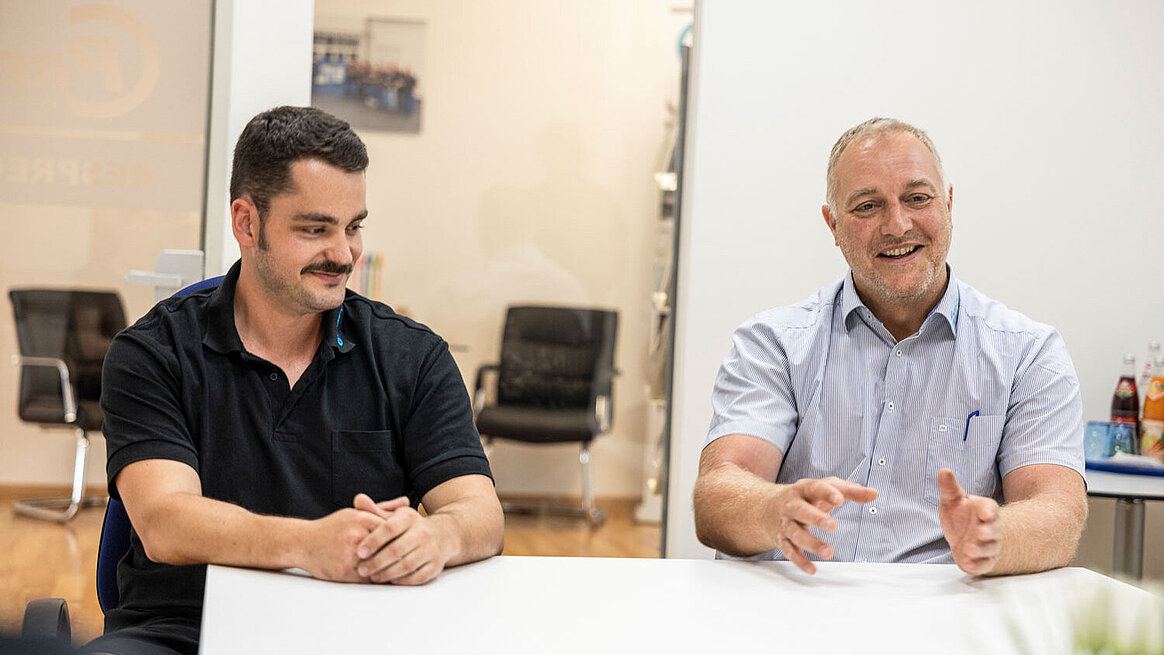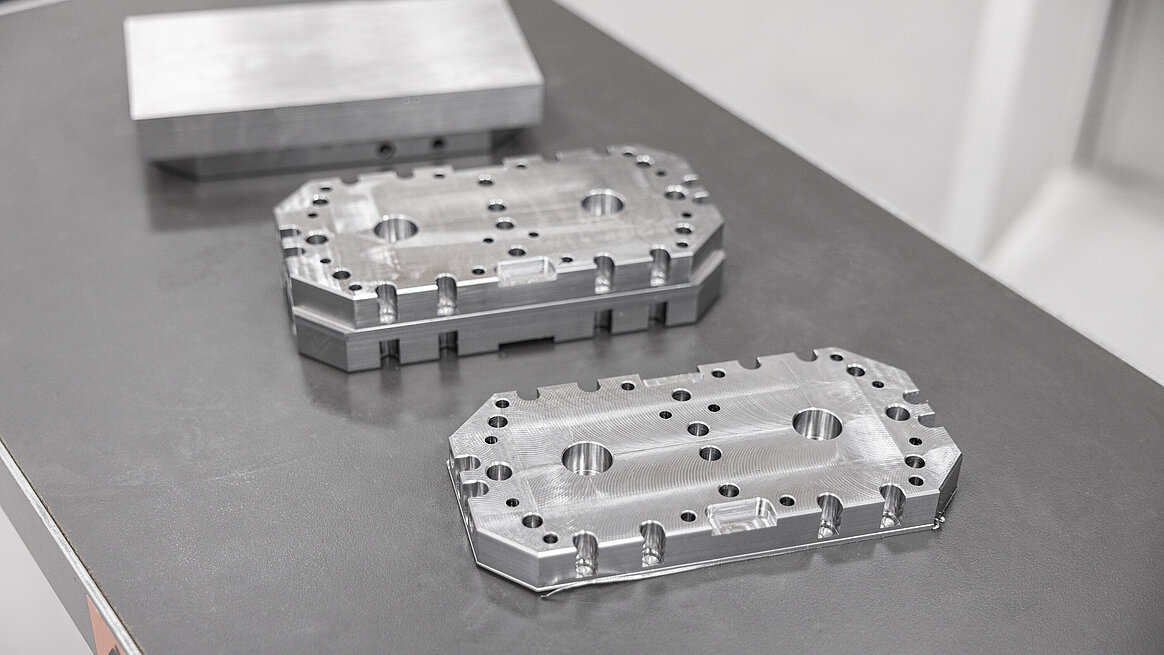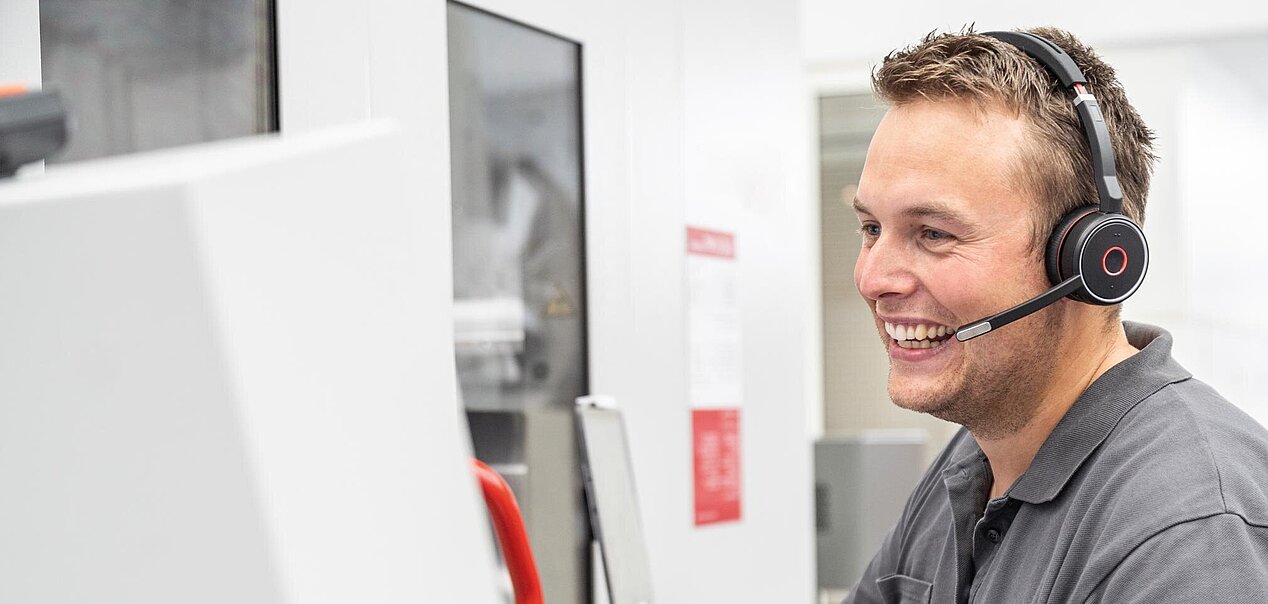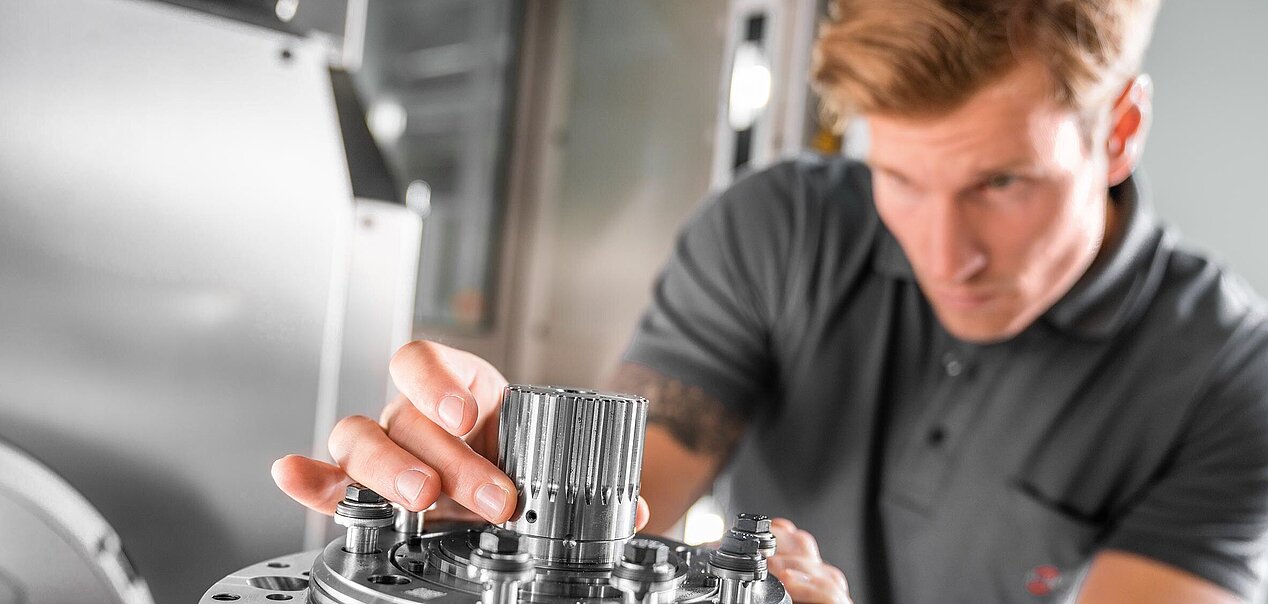C 650 | Precupa GmbH | Tool technology
Precupa combines high-precision tool making with plastic injection moulding and develops injection moulding solutions for the world of tomorrow at its technical centre. One of the core competences in production is milling. This is where the precision tool maker relies on HERMLE, making full use of its entire Performance-Line.
Thomas März decided to take the plunge when Precupa, his employer at the time, was looking for a buyer for the company in 2014 due to a lack of successor. “I’d thought long and hard about what needed to be done to make the whole thing even better,” recalls the current owner and managing director. His career began as an apprentice at the manufacturer of precision tools in the village of Gaißach in southern Germany. He went on to pass the master craftsman examination and took charge of production in 2001. His business plan was convincing: The business officially changed hands in 2015. März immediately went out and bought a 5-axis machining centre – a HERMLE C 400 U – and then restructured and optimised the production spaces to ensure enhanced efficiency and usability.
The core business has basically remained the same: Manufacturing precise injection moulds for the consumer goods and furniture industry, medical technology and the electronics sector. In contrast, the business volume has grown significantly. “We block fixed machine hours for our customers. This provided us with sufficient stability from the start to facilitate boosting up and expanding the business,” explains März. This worked out so well that just two years after the acquisition, he was faced with the question of how to manage the surge in orders. His answer: “Entry into the world of automation would have been too expensive, too time intensive due to extended lead times and impractical given the nature of individual part production. That is why I decided to duplicate the machines: Die sinking and wire eroding machine and an HSC electrode milling centre times two.”
A new one every two years
In the course of these developments, he also acquired a second C 400 U, which went into operation at Precupa in 2018. The only difference: The second machining centre was preconfigured with an internal cooling lubricant supply (ICS). “We were not familiar with the system beforehand. However, we were so impressed by it that we had the ICS retrofitted directly to the first HERMLE machine,” says März enthusiastically. Seeing as the supplied coolant is ejected directly from the tool tip under high pressure, it effortlessly flushes away chips resulting from the cutting action – even from deeper holes. This ensures that the milling process at Precupa is not only faster but also safer and more precise.
The purchase of identical machines was the perfect solution for him – for the time being anyway. Since the third HERMLE machine already joined the company in 2020: März responded to new market demands with the acquisition of a C 250 U. “We were receiving lots of orders for smaller injection moulding tool components. The C 250 U is slightly more compact – that makes us faster.” When Precupa also received orders for larger spin-off and stack moulds, a machine with a larger working area was needed. “The required plates were too large to be machined completely on the C 400 U,” explains März, who ordered a C 650 U from Gosheim in 2022. “We came to a quick agreement, and I placed the order without delay,” März says, highlighting one of the advantages of being the sole owner.
Bioplastic for the world of tomorrow
Another advantage is being able to dictate the pace of technological progress. Since acquiring the business, März has not only enhanced its milling expertise but also expanded the production of plastic parts. The company specialises in thermoplastics, thermosetting plastics and silicone. And the next future-oriented topic is also being addressed at its new technical centre: The injection of fully degradable biomaterials. “The products manufactured from this material aim to replace conventional disposable plastics. They must offer short-term stability and extensive safety but then dissolve quickly, without leaving any residual traces,” explains März.
The material is based on eucalyptus and cannot be compared to conventional plastics in terms of moulding behaviour. “The initial tests almost drove our process engineer crazy,” recalls März. At present, Precupa efficiently manages machinery and tool technology, manufacturing prototypes of ice cream spoons and cups using in-house developed multi-cavity tools. Only the formula still needs to be fine-tuned. He prefers not to divulge too many details about the visionary project he is working on with another business owner. März is confident that the wealth of expertise invested in the project will yield excellent returns in the future.
